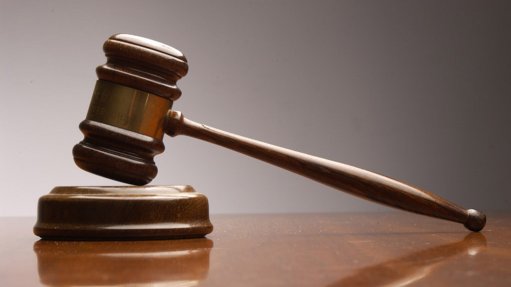
High Court of South Africa, Gauteng Local Division, Johannesburg case number 2021/28121, between KS and AM (first respondent) SHM (second respondent).
This judgment offers a significant insight into the South African judicial response to privacy invasion and cyber defamation, especially in cases involving non-consensual distribution of intimate images and online harassment.
The case stems from a brief romantic relationship between the plaintiff and the first defendant, which lasted from August 2014 to January 2015. The plaintiff believed the first defendant was single, accepted his marriage proposal, and only discovered he was already married when the second defendant (his wife) confronted her. She immediately ended the relationship. However, the first defendant refused to respect her decision, and began a campaign of threats, coercion, and harassment to coerce her back into the relationship.
Despite the plaintiff’s efforts to end all communication—including sending a cease-and-desist letter through her attorney—the first defendant continued to contact her and escalated his threats. He warned her that he had secretly recorded intimate moments and would share them with her family, friends, and professional contacts if she did not meet his demands. This ultimately culminated in the creation of a false Facebook profile in the plaintiff’s name, where the intimate videos and defamatory statements were posted.
The Claims and Nature of Harm
The plaintiff made six claims against the defendants, requesting both general and special damages:
- Claim A: For the creation of the fake Facebook profile and its use to impersonate her, she sought R250 000 in general damages. This invasion of privacy harmed her reputation among friends, family, and colleagues.
- Claim B: For the non-consensual distribution of intimate videos on the fake profile, she sought R2 500 000 in general damages, and R300 000 in special damages to cover past and future medical expenses resulting from trauma. The defendants’ actions were intended to humiliate and harm her, leading to severe psychological distress, PTSD, and long-term medical costs.
- Claim C: For defamatory statements posted on the Facebook profile that portrayed her as immoral and promiscuous, causing humiliation, emotional distress, and social isolation, the plaintiff sought R500 000.
- Claims D, E, and F: For additional defamatory statements made by the second defendant (the first defendant’s wife) to the plaintiff’s colleagues and employer, suggesting she was a “homewrecker” and unfit for her profession. Each instance was claimed at R250 000, totalling R750 000. These communications impacted her standing in her workplace, causing embarrassment and ultimately leading to her resignation.
Psychological Impact and Expert Testimony
The plaintiff presented evidence of the profound psychological impact of the defendants’ actions, including testimony from a psychologist who diagnosed her with post-traumatic stress disorder (PTSD). She described how the invasion of privacy, coupled with the widespread distribution of her intimate images, left her emotionally devastated, fearful, and unable to maintain her professional or social life. This trauma led to physical health issues, such as alopecia and a worsening of her pre-existing heart condition, further illustrating the multifaceted impact of the defendants’ actions on her wellbeing.
The psychological expert’s assessment detailed how the trauma had destabilized her previously stable professional and personal life. Prior to these incidents, she was pursuing doctoral-level studies, held a respected job in a technical field, and had a stable financial situation. The abuse resulted in her resignation, loss of income, and a need for ongoing mental health treatment, further underscoring the severity of the harm she endured.
Legal Framework and Court’s Analysis
The court’s analysis drew on several key legal frameworks:
- Cybercrimes Act: The Act criminalizes the non-consensual sharing of intimate images, affirming that any form of digital or electronic sharing without the depicted person’s consent is an offence. The Act protects the right to privacy and prohibits actions that violate an individual’s dignity and sexual integrity.
- Films and Publications Amendment Act: This law imposes penalties for knowingly distributing private sexual images or films without consent, particularly if done to humiliate or harm the individual. The court emphasized that these protections are part of a broader societal commitment to safeguarding individuals against harassment, defamation, and privacy violations.
The court noted that the actions of the first defendant constituted a serious violation of the plaintiff’s privacy and dignity, exacerbated by the second defendant’s malicious intent to defame her. The court also pointed out that Facebook’s terms of service prohibit harassment and impersonation, which further illustrated the wrongful nature of the defendants’ actions.
Judgment and Damages Awarded
Given the nature and impact of the harm, the court awarded the plaintiff R3 550 000 in damages, broken down as follows:
- Claim A: R250 000 for general damages related to the creation of the fake profile.
- Claim B: R2 500 000 in general damages for the non-consensual distribution of intimate images, and R300 000 for past and future medical expenses.
- Claim C: R500 000 for defamatory statements posted on the fake Facebook account.
- Claims D, E, and F: R250 000 each for defamatory statements made to her employer and colleagues, totalling R750 000.
Additionally, the court awarded attorney-client costs due to the malicious, intentional nature of the defendants’ conduct.
Significance of the Judgment
This case sets a precedent in South African law for awarding damages in cases involving cyber harassment, defamation, and the non-consensual sharing of intimate images. It underscores the judiciary’s recognition of the long-term harm caused by digital harassment and the importance of robust legal protections for victims of online abuse.
The judgment affirms the right to privacy, dignity, and security, particularly in the context of intimate images shared without consent. It also highlights the court’s willingness to award substantial damages as a deterrent, emphasizing that individuals’ lives and reputations must be protected against the increasingly common threat of digital harassment and cyber abuse.
Written by Jan du Toit, Director at Labour Guide ![]()